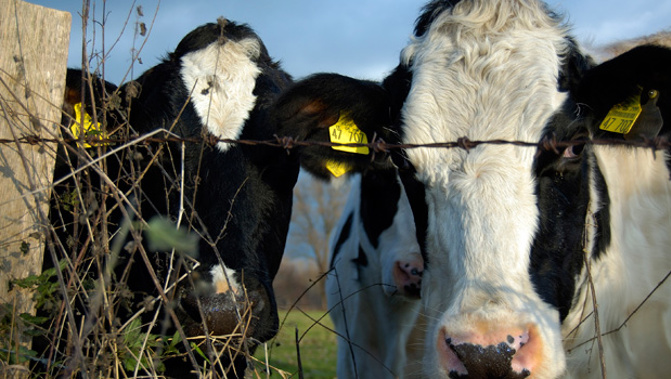
A Mycoplasma bovis-affected farmer's heartfelt plea for communication brought a round of applause at a meeting in North Otago yesterday.
About 100 people attended the MPI roadshow at Papakaio, including Waimate farmer Martyn Jensen, who described himself as "farm No39 infected".
He addressed the meeting reluctantly, as a dairy support farmer who was grazing heifers for a farmer whose herd was confirmed with having M. bovis.
In April, the farmer contacted Mr Jensen to tell him of the infection and, several weeks later, he was contacted by MPI.
What made it harder was they were "perfectly good" heifers and there had not been one clinical sign of the disease.
MPI had defended its decision to maintain the privacy of those affected by the disease.
Mr Jensen said he respected there was an aspect of secrecy - "but unless you want to draw this out for bloody years, you have to start talking".
He told his neighbours and the response was mixed - some of it was pleasing, some was "bloody horrible".
MPI director of response David Yard said MPI did not believe naming individuals would benefit the response outcomes.
There had been incidents of herd sales cancelled just because a blood test had been taken, feed suppliers refusing to go on to properties for fear of reaction from other clients, and children being bullied at school.
Affected Maheno farmer Kerry Dwyer said those impacted by the disease were going to lose money, sleep, time, stock and friends.
He knew of people who had shot animals in the "last wee while" because they "just can't handle the hassle, because they know it's going to cost them".
MPI chief operations officer Roger Smith said anyone "that damn stupid" to go out and kill stock, and who were prepared to "destroy this industry", deserved what happened "when my people turn up on your property".
The only way the eradication process would work was if everybody pulled together, he said.
It was not going to "wipe out" the dairy industry but would change the way farmers farmed.
Mr Smith acknowledged the National Animal Tracing and Identification (Nait) system had not worked, and that MPI had dropped the ball occasionally.
It had still not been identified how M. bovis came to New Zealand.
North Otago Federated Farmers president Simon Williamson believed MPI's downfall was "on the ground", that it did not have enough practical, farming people involved who understood what was happening "outside the office door".
Kurow farmer Walter Cameron raised concerns about the trading of calves through saleyards, saying that would have to stop if the disease was going to be stopped.
He understood up to 80 animals a week, on average, went through Temuka saleyards with no tags.
National's primary industries spokesman Nathan Guy, who was primary industries minister when the outbreak was announced last year, told the Otago Daily Times he was happy with his government's response then.
He believed eradication was the right move and told the meeting that while he had been critical of MPI, it was a big issue and it was now a matter of all working cohesively.
MPI had taken "a bit of a battering" but it was trying to do its best for farmers.
Take your Radio, Podcasts and Music with you









